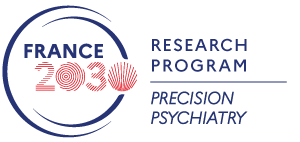Exploring a digital therapy for depressive and bipolar disorders
Project coordinators:
Ludovic Samalin, Pierre Philip
Coordinating institution:
Clermont-Ferrand University
Clinical trial, digital therapy, virtual agents, sleep, depressive symptoms, affective disorders
- Budget: 1,1 M€
- Duration: 60 months
- Number: ANR-22-EXPR-0008
Mood disorders, such as characterized depressive disorders (or “unipolar disorders”) and bipolar disorders, are a public health issue for patients and their families, and have a considerable impact on their quality of life. Cognitive and behavioral therapies have proven their effectiveness in the management of these disorders. However healthcare systems are faced with increasing delays and accessibility problems. Faced with this challenge, digital solutions offer an innovative alternative.
The Audicobe project takes the form of a clinical trial, and aims to explore the acceptability and effectiveness of a new innovative digital intervention, to contribute to the development of precision medicine.
The solution being studied is based on the Kanopée application, developed by UMR CNRS SANPSY 6033 :
- assessment and phenotyping of patients’ mental health via a virtual agent under ecological conditions,
- an intervention inspired by cognitive and behavioral therapies, offering personalized recommendations for physical activity, sleep hygiene and motivational interviews,
- intervention monitoring involving reinforcement strategies and evaluation interviews.
The solution uses empathetic human interfaces based on animated conversational agents (ACAs) running on the patient’s smartphone. These ACAs have already been used in medicine for diagnostic, preventive or therapeutic purposes, and have proved highly acceptable to patients. They are interoperable (multi-scale, multimodal and high-frequency) and developed to be patient-friendly, so highly acceptable (empathetic, privacy-guaranteeing and trust-generating).
The 1st objective of the project is to create an empathic scenario for animated conversational agents to deliver cognitive behavioral therapy, taking into account the specificities of the two pathologies, in order to optimize their use.
The 2nd objective is to confirm the acceptability of a cognitive behavioral therapy intervention using virtual agents in this population. Analysis of compliance and adherence to behavioral recommendations and their predictive factors will complete this evaluation.
The 3rd objective is to confirm the efficacy of a cognitive-behavioral intervention, focusing on sleep and physical activity, on depressive symptomatology in a population of patients with a depressive disorder.
Bordeaux University, Fondation FondaMental, team UMR CNRS SANPSY 6033

